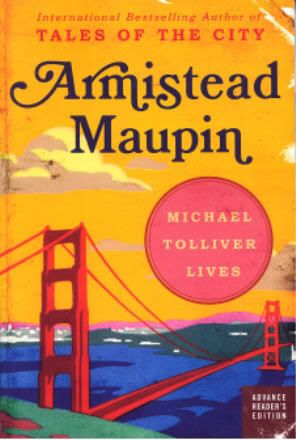 “Maupin denies that this is the seventh volume of his beloved Tales of the City, but – happily – that’s exactly what it is…” -- Publisher’s Weekly
“Maupin denies that this is the seventh volume of his beloved Tales of the City, but – happily – that’s exactly what it is…” -- Publisher’s WeeklyThe above quote is on the back of the dust cover for Michael Tolliver Lives, the latest work from Armistead Maupin. After reading the book, I’m in agreement with both Maupin and Publisher’s Weekly. Yes, it chronicles the same characters as the Tales of the City series, but unlike the previous six Tales books, Lives is told in the first person -- a marked departure and it gives Maupin's universe a new texture. Michael Tolliver Lives could have been whorishly titled Tales of the City: The Next Generation; you need no knowledge of the previous works in order to get it. The book takes place in the present, yet it’s been 18 years since we’ve visited these characters. While they’ve moved with and been affected by the times (alas, 28 Barbary Lane is mostly a distant memory), Michael, Brian Hawkins and Mrs. Madrigal are still the same people we love -- and yes, they still get high.
 Maupin has stated that the numerous Tales characters are various sides of himself, yet Michael's clearly the closest to the real man. While reading the latest installment, I gradually found it impossible to separate Michael from Maupin (much like Gabriel Noone in The Night Listener). The two have fused into one, and, like a closeted gay man finally coming out, it’s refreshing to see Armistead embracing his fictitious alter ego as the straightest route to saying what’s got to be said. An aspect of Maupin’s writing that’s always been appealing is that his stories don’t depend on gay culture, but rather truthfully showcase it as part of the bigger world. This sounds so politically incorrect, but the new book is really gay for the first 3 or 4 chapters. It was almost off-putting until I just said to myself, “Hey dickhead -- Michael’s telling this story. He’s [now] a 55-year old homosexual. What other point of view should he have?” (And it was right around this point that Brian Hawkins, my favorite Tales resident, showed up.)
Maupin has stated that the numerous Tales characters are various sides of himself, yet Michael's clearly the closest to the real man. While reading the latest installment, I gradually found it impossible to separate Michael from Maupin (much like Gabriel Noone in The Night Listener). The two have fused into one, and, like a closeted gay man finally coming out, it’s refreshing to see Armistead embracing his fictitious alter ego as the straightest route to saying what’s got to be said. An aspect of Maupin’s writing that’s always been appealing is that his stories don’t depend on gay culture, but rather truthfully showcase it as part of the bigger world. This sounds so politically incorrect, but the new book is really gay for the first 3 or 4 chapters. It was almost off-putting until I just said to myself, “Hey dickhead -- Michael’s telling this story. He’s [now] a 55-year old homosexual. What other point of view should he have?” (And it was right around this point that Brian Hawkins, my favorite Tales resident, showed up.)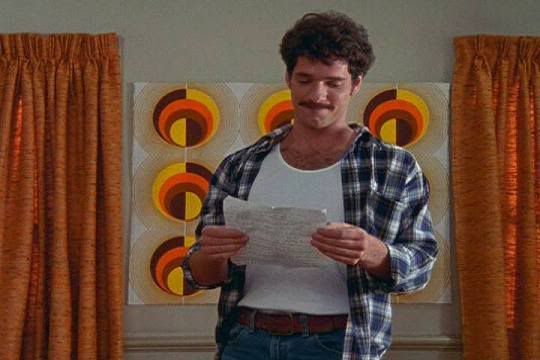 Michael’s seen it all. He’s fictionally been witness and party to every change and movement in gay culture since he was created in 1974. I once lovingly labelled Soap's Jodie Dallas "the worst homosexual ever created"; if that's so, Michael's the greatest. (Odd that the two were "born" only a few years apart.) The title Michael Tolliver Lives seems awkward, yet via Maupin's prose it becomes ideal. As characters go, Michael’s been in limbo since 1987, so yeah, he fucking lives once again -- sorta like Superman without the cape and tights. If I made a list of my gay friends, Michael would be the only person on it that doesn’t really exist – we're that close.
Michael’s seen it all. He’s fictionally been witness and party to every change and movement in gay culture since he was created in 1974. I once lovingly labelled Soap's Jodie Dallas "the worst homosexual ever created"; if that's so, Michael's the greatest. (Odd that the two were "born" only a few years apart.) The title Michael Tolliver Lives seems awkward, yet via Maupin's prose it becomes ideal. As characters go, Michael’s been in limbo since 1987, so yeah, he fucking lives once again -- sorta like Superman without the cape and tights. If I made a list of my gay friends, Michael would be the only person on it that doesn’t really exist – we're that close.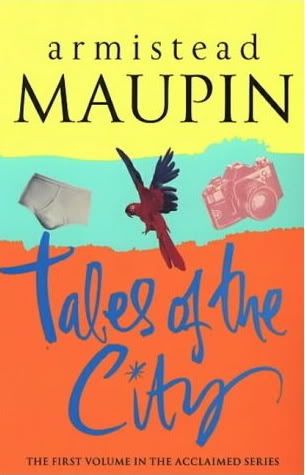 So what’s the book about? Love, family, honesty, forgiveness and just being there for people. In addition to those we already know, Maupin unveils a whole new set of characters that will undoubtedly resurface in his next book. One young lady is a hugely popular sex blogger; another individual seems ideally suited to carry the torch of Mrs. Madrigal should something ever happen to her (perish the thought, but she is 83 at this point). Michael's ultra-right wing Christian brother Irwin and his Jesus-freak wife Lenore are two standouts. Everything there is to dislike about Bible-thumpers can be found in the pair, but Maupin's a classy enough guy to give them sympathetic sides as well. They've got their beliefs, but Michael is family and a constant reminder that the world is a more complex tapestry than their views should allow. I was set to loathe these people, but Maupin, devil that he is, made me love them for their faults.
So what’s the book about? Love, family, honesty, forgiveness and just being there for people. In addition to those we already know, Maupin unveils a whole new set of characters that will undoubtedly resurface in his next book. One young lady is a hugely popular sex blogger; another individual seems ideally suited to carry the torch of Mrs. Madrigal should something ever happen to her (perish the thought, but she is 83 at this point). Michael's ultra-right wing Christian brother Irwin and his Jesus-freak wife Lenore are two standouts. Everything there is to dislike about Bible-thumpers can be found in the pair, but Maupin's a classy enough guy to give them sympathetic sides as well. They've got their beliefs, but Michael is family and a constant reminder that the world is a more complex tapestry than their views should allow. I was set to loathe these people, but Maupin, devil that he is, made me love them for their faults.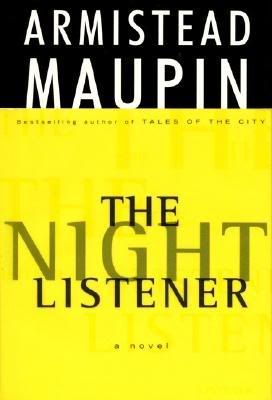 Reading Maupin is an effortless endeavor -- the guy just knows how to economically and entertainingly tell a story. Lives is a swift read that alternates between raunchy and sweet. It presents wry commentary, laugh-out loud observations and touching familial friction (Michael’s visit with his dying mother brought me to tears). There’s even his trademark Hitchcockian twist as the book nears the finish line when a buried secret rears its ugly head. Although not as “big” as say, Rev. Jim Jones’ appearance in Further Tales, it’s still pretty big as far as the novel’s concerned. When asked, “What’s next?” in a recent interview the writer fessed up: “Another book about the Tales characters. I've lived in that world for 30 years, even when I was writing non-Tales books. Whatever I have to offer seems to come through those characters, and I see no reason to abandon them.”
Reading Maupin is an effortless endeavor -- the guy just knows how to economically and entertainingly tell a story. Lives is a swift read that alternates between raunchy and sweet. It presents wry commentary, laugh-out loud observations and touching familial friction (Michael’s visit with his dying mother brought me to tears). There’s even his trademark Hitchcockian twist as the book nears the finish line when a buried secret rears its ugly head. Although not as “big” as say, Rev. Jim Jones’ appearance in Further Tales, it’s still pretty big as far as the novel’s concerned. When asked, “What’s next?” in a recent interview the writer fessed up: “Another book about the Tales characters. I've lived in that world for 30 years, even when I was writing non-Tales books. Whatever I have to offer seems to come through those characters, and I see no reason to abandon them.”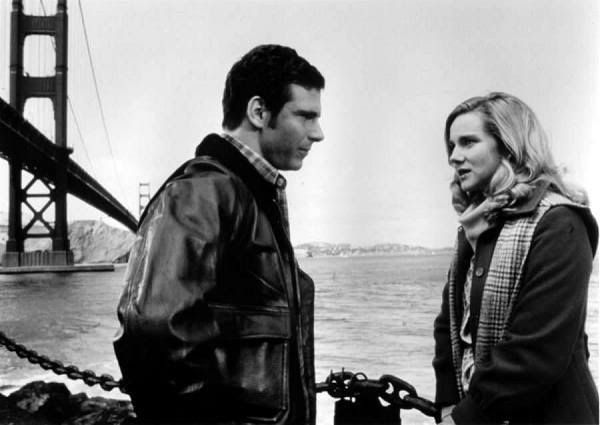 New Maupin is always a reason for celebration. Maybe I sound like I’ve been a fan since 1974; someone who’s accompanied him on this rewarding journey since the beginning…but that would require me to have been a very progressive 3-year old. Like many, I discovered his work back in ’94, through the PBS miniseries adaptation of the first Tales of the City book, and I’ve been a devotee ever since. While he can hardly be described as prolific (9 books over 30+ years), Armistead’s like the gay Kubrick of narrative fiction: You might not get much, but what you do get is always rich and special. What would Michael Tolliver Lives be like as an introduction to the Tales universe -- to read this text first and then go back and discover the finer details of these characters' pasts? You know -- in a Darth Vadery/Anakin Skywalkery sorta way. If Armistead were here right now, I’d ask him to craft the perfect gay lightsaber joke as an ending to the piece. I'd repay him by suggesting that he sell T-Shirts on his website proclaiming "There is no fifth destination". After reading the book, you'll want one.
New Maupin is always a reason for celebration. Maybe I sound like I’ve been a fan since 1974; someone who’s accompanied him on this rewarding journey since the beginning…but that would require me to have been a very progressive 3-year old. Like many, I discovered his work back in ’94, through the PBS miniseries adaptation of the first Tales of the City book, and I’ve been a devotee ever since. While he can hardly be described as prolific (9 books over 30+ years), Armistead’s like the gay Kubrick of narrative fiction: You might not get much, but what you do get is always rich and special. What would Michael Tolliver Lives be like as an introduction to the Tales universe -- to read this text first and then go back and discover the finer details of these characters' pasts? You know -- in a Darth Vadery/Anakin Skywalkery sorta way. If Armistead were here right now, I’d ask him to craft the perfect gay lightsaber joke as an ending to the piece. I'd repay him by suggesting that he sell T-Shirts on his website proclaiming "There is no fifth destination". After reading the book, you'll want one.* * *
The following paragraph contains spoilers that will mostly affect long-term Maupin fans. So if you know your Tales, you shouldn’t read it before reading Michael Tolliver Lives (but do come back afterwards!). If, on the other hand, you’re a Tales virgin, it probably won’t matter much one way or the other. Highlight the below text:
One of the most surprising aspects of Lives is the reappearance of Mary Ann Singleton (now Caruthers) near the book’s close. Mary Ann, for the uninitiated, was basically the central character of the first three Tales novels. As the series progressed, there was less emphasis on her and by the final volume, Sure of You, she’d become a selfish, career-minded bitch who ended up leaving her family for a job in New York. Maupin’s gotten a lot of shit from people over the years about the development of Mary Ann; he’s often been accused of betraying the character. By the time I hit Sure of You, I looked back and felt she’d been heading down this path from the very beginning. She was an opportunist from the word go and dramatically it made perfect sense. In some ways, Mary Ann was the most real character in the series because she wasn’t a happy ending. In Michael Tolliver Lives, I think Maupin seeks to redeem Mary Ann somewhat, as she begs forgiveness from both Michael and the reader. I’m still on the fence as to whether or not it works, but then again forgiveness is a complex issue. Perhaps this isn't the last we've seen of Mary Ann and he'll expand on the issue(s) in a future book. Her inclusion here is a real treat regardless, as she was the one character I didn’t expect to see again.
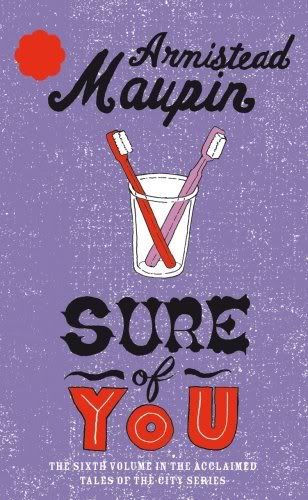
One of the most surprising aspects of Lives is the reappearance of Mary Ann Singleton (now Caruthers) near the book’s close. Mary Ann, for the uninitiated, was basically the central character of the first three Tales novels. As the series progressed, there was less emphasis on her and by the final volume, Sure of You, she’d become a selfish, career-minded bitch who ended up leaving her family for a job in New York. Maupin’s gotten a lot of shit from people over the years about the development of Mary Ann; he’s often been accused of betraying the character. By the time I hit Sure of You, I looked back and felt she’d been heading down this path from the very beginning. She was an opportunist from the word go and dramatically it made perfect sense. In some ways, Mary Ann was the most real character in the series because she wasn’t a happy ending. In Michael Tolliver Lives, I think Maupin seeks to redeem Mary Ann somewhat, as she begs forgiveness from both Michael and the reader. I’m still on the fence as to whether or not it works, but then again forgiveness is a complex issue. Perhaps this isn't the last we've seen of Mary Ann and he'll expand on the issue(s) in a future book. Her inclusion here is a real treat regardless, as she was the one character I didn’t expect to see again.

